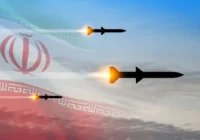On May 6, thousands poured into the streets of Gaza just minutes after Hamas announced it had accepted a Qatari-Egyptian ceasefire proposal.
“We have shown the world that we survived this war as Palestinians. We stood our ground on our land. We survived 212 days of attacks and devastation by the world’s most advanced weapons. We did not leave. We survived on our own with no help from outside,” said Ahmad, a young Gazan, one of the thousands celebrating.
Yet the jubilation was short-lived. The crowds dissipated 90 minutes later as Israel made clear its rejection of the proposal.
Netanyahu is still trying to turn the war into an Israeli victory
“The Hamas proposal is far from meeting Israel’s core demands,” Israeli Prime Minister Benjamin Netanyahu’s office said in a statement. Not wanting Israel to be painted as the party pooper, the statement added that Israel would “dispatch a ranking delegation to Egypt in an effort to maximize the possibility of reaching an agreement on terms acceptable to Israel.”
The celebration of a ceasefire that was not to be highlights what is at stake in the seven-month-old war with Israel’s refusal to end the carnage. Netanyahu is going through the motions as he lays the groundwork for what could be a final major offensive against Hamas in the southern Gazan enclave of Rafah.
The battle could determine Netanyahu’s chances of political survival. Rafah is his desperate attempt at achieving the war goals he has failed to realize in seven months of unrelenting military operations — at an unspeakable cost to innocent Palestinians.
These goals include the destruction of Hamas, the elimination of its military force, the killing or capture of its top leadership, the release of the remaining Hamas-held hostages which the group kidnapped during its October 7 attack on Israel and ensuring that Gaza will be longer serve as a launching-pad for Palestinian resistance.
Israel continues to play Whac-A-Mole with Hamas despite inflicting severe losses. The group’s Gaza-based leadership remains intact and in control, and it was a one-week ceasefire in November, not Israeli military action, that freed roughly half of the 250 hostages. Moreover, Israel believes that Hamas’ leadership — including its Gaza chief Yahya Sinwar, Israel’s most wanted man — is hiding in tunnels under Rafah shielded by the remaining hostages.
Irrespective of whether he succeeds in Gaza or not, Netanyahu is living on borrowed time. Opinion polls suggest that Netanyahu and his ultra-nationalist, ultra-conservative coalition partners will lose the next election.
Hundreds of angry protesters in Tel Aviv and Jerusalem denounced the government’s rejection of the ceasefire proposal. They called on Netanyahu to prioritize the release of Hamas-held hostages by accepting the deal.
Instead, Israeli forces on May 7 took control of the Rafah side of the Gaza–Egypt border and closed the border crossing crucial to the flow of desperately needed humanitarian supplies in the Strip as Israeli tanks pushed into the city of Rafah itself.

Derived from “Hostilities in the Gaza Strip and Israel | Flash Update #114.” Via unocha.org.
Netanyahu and Sinwar gamble while Gazans suffer
Netanyahu’s rejection of the deal while going through the motions of negotiations and his impending Rafah offensive, at best, buy him time. Even so, by accepting the proposed ceasefire, Hamas threw a curveball at Netanyahu as well as the Biden administration.
The acceptance put the shoe on Netanyahu’s foot and the Biden administration on the spot. The US executive has repeatedly publicly opposed a massive military operation in Rafah, home to more than a million Palestinians displaced by the war.
The irony is that Hamas offered Israel and the US a way out by leaking details of the ceasefire and prisoner exchange proposal it had accepted that made clear that it was not a deal Israel would accept. At the same time, this allowed Hamas to project itself as engaging constructively in negotiations.
The leaks suggested, against all evidence from Jerusalem, that Israel would agree to a permanent rather than a temporary ceasefire, an end to the war and a complete withdrawal from Gaza. They also implied that US President Joe Biden had accepted Hamas’ demand that the United States guarantee implementation of the deal.
“The essential aim of the deal is a permanent ceasefire and full withdrawal” of Israeli forces from Gaza, senior Hamas negotiator Khali al Hayaa told Al Jazeera. “We did what we are supposed to do. The onus is on the mediators and the international community.”
Hamas’ acceptance of a ceasefire proposal it knew Israel would reject raises the tantalizing question of whether Netanyahu may not be the only one allegedly wanting to prolong the war for personal political gain.
Nevertheless, the short-lived celebrations and the fact that a ceasefire means to Gazans more than just an end to the death, destitution and destruction in the Strip suggests that the episode could create a reckoning not only for Netanyahu but also for Sinwar. The devastation of their lives has not dampened Palestinian national aspirations, even if they are desperate for immediate relief. Gazans want to extract a price for the suffering inflicted upon them.
Sinwar and Hamas are feeling the heat of growing criticism of the group for provoking the Israeli assault that has devastated Gaza and reduced its 2.3 million inhabitants to destitution. In late March, Hamas felt compelled to issue a lengthy statement apologizing to Gazans for their suffering.
This is despite 52% of Gazans favoring a return to Hamas rule post-war, as opposed to the West Bank-based, internationally recognized Palestine Authority, an Arab peacekeeping force, the United Nations or Israel. It’s a choice between what Palestinians perceive as bad alternatives. They are opting, against all odds, for the party most vigorous in defending Palestinian rights and aspirations.
Prominent Israeli columnist Anschel Pfeffer argues that “it is looking increasingly unlikely that Hamas’ chief in Gaza and the man who calls the shots on any deal, Yahya Sinwar, is prepared to agree to any compromise that Prime Minister Benjamin Netanyahu can accept. Both men are determined to emerge with a perception of victory in their grasp – but there doesn’t appear to be any framework in which the two can have that.”
Even so, Pfeffer noted, “Israelis and Gazans aren’t stupid. Most of them have conceded that they have lost too much for there to be any notion of ‘victory’ in this war. But as long as their fates are controlled by two men who insist on being the victor at any cost, this war is going to continue.”
[The Turbulent World first published this piece.]
[Anton Schauble edited this piece.]
The views expressed in this article are the author’s own and do not necessarily reflect Fair Observer’s editorial policy.
Support Fair Observer
We rely on your support for our independence, diversity and quality.
For more than 10 years, Fair Observer has been free, fair and independent. No billionaire owns us, no advertisers control us. We are a reader-supported nonprofit. Unlike many other publications, we keep our content free for readers regardless of where they live or whether they can afford to pay. We have no paywalls and no ads.
In the post-truth era of fake news, echo chambers and filter bubbles, we publish a plurality of perspectives from around the world. Anyone can publish with us, but everyone goes through a rigorous editorial process. So, you get fact-checked, well-reasoned content instead of noise.
We publish 2,500+ voices from 90+ countries. We also conduct education and training programs
on subjects ranging from digital media and journalism to writing and critical thinking. This
doesn’t come cheap. Servers, editors, trainers and web developers cost
money.
Please consider supporting us on a regular basis as a recurring donor or a
sustaining member.
Will you support FO’s journalism?
We rely on your support for our independence, diversity and quality.











Comment